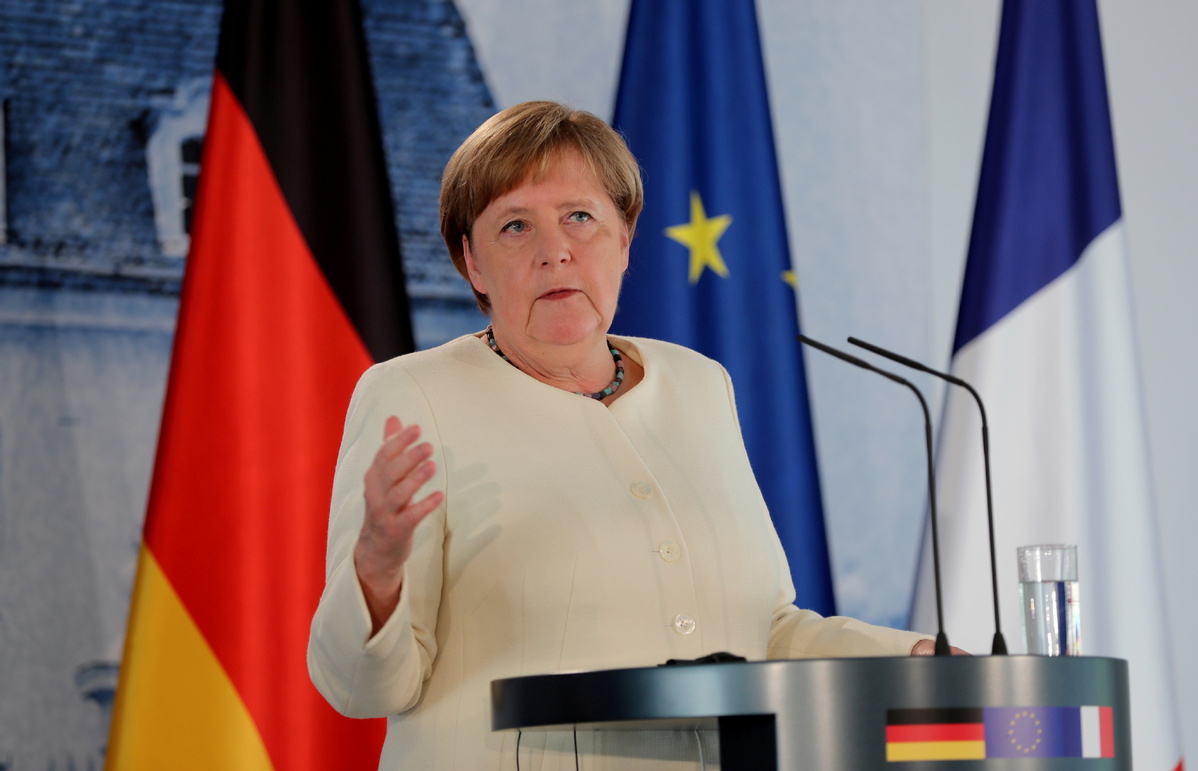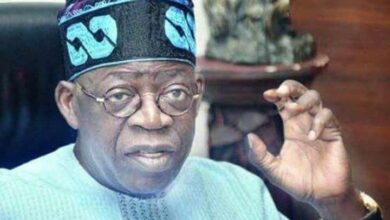Hopes high as Germany begins EU presidency

Germany hopes that its European Union presidency, which begins on Wednesday, will not only help the bloc to recover from the ravages of the COVID-19 pandemic but also to embark on a future-oriented path.
Germany will replace Croatia to assume the rotating presidency of the Council of the European Union from July 1 to December 31.

German Chancellor Angela Merkel said on Monday that she hoped EU leaders would agree on their next budget and a coronavirus recovery fund at a summit scheduled for July 17-18.
The 1.85 trillion euro ($2.07 trillion) recovery package would include 1.1 trillion euros from the 2021-27 long-term budget and 750 billion euros raised from the financial market. Of the 750 billion euros, 500 billion would be given as grants and 250 billion as loans.
“We hope we can find a solution, even if there is still a long way to go,” Merkel said at a joint news conference with French President Emmanuel Macron after their meeting in Germany. She and Macron called on EU leaders to reach a deal by the end of July to revive an economy hit hard by the pandemic.
But the so-called frugal four-the Netherlands, Sweden, Denmark and Austria-have called for responsible spending and want more loans and fewer grants.
Macron said on Monday that the fund should include 500 billion euros of grants to the hardest-hit countries. “Without this, Europe wouldn’t rise to the challenge,” he said.
Europe was the epicenter of COVID-19 in March, with more than 100,000 deaths in the 27 member states. Italy and Spain were hit the hardest.
“We are taking on this role in a situation the like of which the EU has never before experienced,” Merkel said of Germany’s presidency in a podcast on Saturday.
Germany’s presidency is promoting the motto “Together for Europe’s recovery”, and Merkel said Germany will do everything in its power to achieve that goal.
“I am convinced we can overcome the crisis in Europe and make ourselves future-proof at the same time,” said Merkel, whose popularity in Germany has surged due to her effective pandemic management.
She highlighted climate change, digitalization and the strengthening of the EU’s global role in a polarized world as three key challenges ahead.
The EU under its Green Deal aims to make Europe the first carbon-neutral continent by 2050. Meanwhile, EU member states have different approaches as to how much their 5G networks should be built by Chinese telecom giant Huawei. The EU has also indicated it does not want to be forced to choose between China and the United States.
Merkel said China and the EU share common interests, such as climate change, and have been negotiating the Comprehensive Agreement on Investment. They also should coordinate their development policies in Africa, she added.
She said the Leipzig summit, the first of its kind between top Chinese leader and heads of all 27 EU member states, will be held later, with the objective of advancing EU-China relations. The summit, originally scheduled for September, has been postponed due to the pandemic.
Merkel, like some EU leaders, has advocated a joint European position on China, but she has conceded that will not be an easy task.
The EU’s negotiations with the United Kingdom on a trade deal also are expected to be concluded during Germany’s presidency. The two sides have resumed their trade talks in Brussels this week, the first face-to-face talks since the COVID-19 outbreak.
“We’re aware the expectations for the German presidency are particularly high; we want to fulfill these expectations through our commitment to ensuring we all get through this crisis together, and at the same time prepare Europe for the future,” Merkel said.
Carl Bildt, co-chair of the European Council on Foreign Relations and a former Swedish prime minister, said Germany’s presidency will face a mess regarding Brexit and the recovery fund, but he said he hopes the focus will not be just short-term.
Bildt said on Monday that the focus should be “on the question of where Europe is going to be in the competitive space five years from now”.
A Sunday editorial in the Guardian said it is the EU’s good fortune that Germany, the largest and most powerful member state, will take over its rotating presidency this week.
“For the next six months, Ms Merkel will be leading from the front. For the EU, at a time when the stakes have never been higher, that is good news,” it said.









